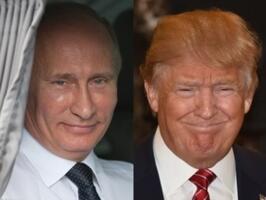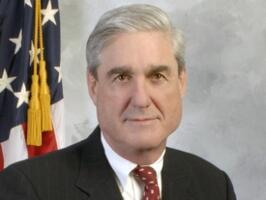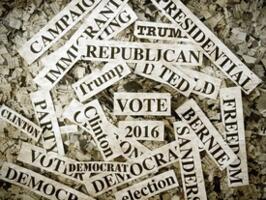Half Agree Russia Is Likely Election Meddler But Say U.S. Does, Too
Now that Special Counsel Robert Mueller’s Russia probe has resulted in 13 indictments against Russians for meddling in the 2016 presidential election, half of voters think it’s possible this alleged interference cost Hillary Clinton the presidency. But slightly more think the U.S. government also interferes in the elections of other countries.
A new Rasmussen Reports national telephone and online survey finds that 49% of Likely U.S. Voters think it’s at least somewhat likely that this alleged Russian meddling cost Clinton the 2016 presidential election, but that includes only 24% who say it's Very Likely. Just as many (48%) think it’s unlikely the alleged meddling influenced the election's outcome, with 32% who say it’s Not At All Likely. (To see survey question wording, click here.)
But 51% believe the U.S. government secretly tries to influence elections in other countries, too. Only 20% disagree. A sizable 29%, however, are not sure.
The indictments handed down to the Russians involved using stolen identities from American citizens to promote mostly pro-Trump political activist campaigns through social media. Interestingly, though, 79% of regular social media users say their political opinions are not significantly influenced by postings on social media, including 40% who say they are not influenced at all.
(Want a free daily e-mail update? If it's in the news, it's in our polls). Rasmussen Reports updates are also available on Twitter or Facebook.
The national survey of 1,000 Likely Voters was conducted on February 19-20, 2018 by Rasmussen Reports. The margin of sampling error is +/- 3 percentage points with a 95% level of confidence. Field work for all Rasmussen Reports surveys is conducted by Pulse Opinion Research, LLC. See methodology.
In late 2016, 45% of voters thought it was likely the Russian government helped Donald Trump win the presidential election. Slightly more (47%) considered that scenario unlikely. But while 71% of Democrats said it was likely the Russians helped Trump win, just as many Republicans (71%) thought Russian involvement was unlikely.
Seventy-four percent (74%) of Democrats now believe the alleged Russian meddling is likely to have cost Clinton the election. Seventy-four percent (74%) of Republicans disagree. Voters not affiliated with either major political party are closely divided. Democrats (47%) are slightly less convinced than Republicans (50%) and unaffiliateds (56%) that the U.S. government secretly tries to influence elections in other countries.
Fifty-eight percent (58%) of voters under 40 think Russian meddling may have cost Clinton the election. Fifty-five percent (55%) of older voters consider that unlikely. But those of all ages are in general agreement about U.S. meddling.
Democrats and younger voters are also more likely to say their political views are influenced by social media sites.
Just 10% of voters who Strongly Approve of the job President Trump is doing think Russian meddling is likely to have cost Clinton the election, compared to 86% of those who Strongly Disapprove of the president's job performance. Those who Strongly Disapprove are only slightly less likely to believe the United States secretly interferes with elections in other countries, though.
Forty-two percent (42%) of all voters believe Russia is more likely than the FBI to have meddled in the 2016 presidential race. But 34% now think the FBI is more likely to have meddled in the election.
Just prior to the election, voters were much more likely to believe that the U.S. media was trying to swing things for Clinton than that the Russian government was working to get Trump elected.
For Democrats, the possible Trump-Russia connection remains the burning issue of the day. For the rest of voters, pocketbook issues and illegal immigration are priorities.
As Mueller continues his investigation, one-in-three voters believe the probe is fueled by a political agenda.
Additional information from this survey and a full demographic breakdown are available to Platinum Members only.
Please sign up for the Rasmussen Reports daily e-mail update (it's free) or follow us on Twitter or Facebook. Let us keep you up to date with the latest public opinion news.
The national survey of 1,000 Likely Voters was conducted on February 19-20, 2018 by Rasmussen Reports. The margin of sampling error is +/- 3 percentage points with a 95% level of confidence. Field work for all Rasmussen Reports surveys is conducted by Pulse Opinion Research, LLC. See methodology.
Rasmussen Reports is a media company specializing in the collection, publication and distribution of public opinion information.
We conduct public opinion polls on a variety of topics to inform our audience on events in the news and other topics of interest. To ensure editorial control and independence, we pay for the polls ourselves and generate revenue through the sale of subscriptions, sponsorships, and advertising. Nightly polling on politics, business and lifestyle topics provides the content to update the Rasmussen Reports web site many times each day. If it's in the news, it's in our polls. Additionally, the data drives a daily update newsletter and various media outlets across the country.
Some information, including the Rasmussen Reports daily Presidential Tracking Poll and commentaries are available for free to the general public. Subscriptions are available for $4.95 a month or 34.95 a year that provide subscribers with exclusive access to more than 20 stories per week on upcoming elections, consumer confidence, and issues that affect us all. For those who are really into the numbers, Platinum Members can review demographic crosstabs and a full history of our data.
To learn more about our methodology, click here.





